R&D PROJECTS
If you believe in innovation you must invest in Research and Development.
So did Trilogis, to give excellence to its business.
The Trilogis’ R&D lab research and disseminates scientific, technological and functional knowledge.
They are applied mainly to the domain areas of our expertise.
EC PROJECTS

The goal of i-locate is to “navigate” inside buildings to reach the place of your your destination (public office, clinic, shop, etc.) using your own smartphone.
It also allows for tracking “indoor” of objects and portable equipment for their localization, management and maintenance.

UNCAP delivers a platform based on open industrial standards able to create new care & assistance paradigms.
The result will be an open source, scalable and privacy-savvy ecosystem ready to help aging people live independently

There are two main targets in the EXPRESSO project: the definition of a European standard reference for interoperability of systems in the field of Smart City; the development of an IT platform “Smart Cities Enterprise Application” for the management and sharing of data and “best practices”.
![]()
giCASES project involves close cooperation between industrial partners and universities; they will jointly develop new materials and new methods of “Learning case” for the proactive development of knowledge in the field of geographical information.
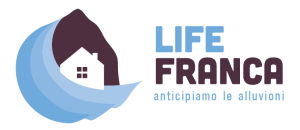
the European project LIFE FRANCA aims to understand and anticipate the flood risk in the Alps.
In particular, it has the objective to prepare the population to tackle the floods in Trentino, through a participatory process among citizens, technicians and administrations.

indoor/outdoor location and asset management through open geodata
2014 – in progress
Trilogis is the coordinator of this important project.
The goal of i-locate is to simplify the life of users by helping them to “navigate” inside buildings to reach the destination (public office, clinic, shop, etc.), and providing any other support information available ( queue, unforeseen changes, suggestions, etc.), using their smartphone.
“I-locate” also provides for the tracking “indoor” of objects and portable equipment for their localization, management and maintenance.
It is an innovation project; to achieve goals using existing technologies by transferring the results of previously conducted research into real products to be made available to the private citizen and public bodies.
There are 14 pilot sites that will remain active for over a year to validate the technologies developed for navigation “door to door” and location of portable equipment: hospitals, public buildings, museums and cultural attractions.
i-locate it will last three years from 1 January 2014.
The total budget is 4.7 million Euros and is co-financed 50% by the European Commission (ICT-PSP program).
The realization of the project is entrusted to as many as 24 partners located in 9 European countries and coordinated by Trilogis (Croatia, Great Britain, Germany, Greece, Italy, Luxembourg, Malta, Netherlands, Romania).

Ubiquitous Interoperable Care for Ageing People
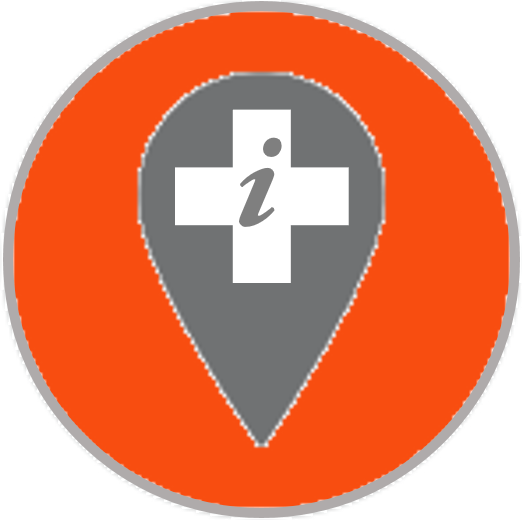
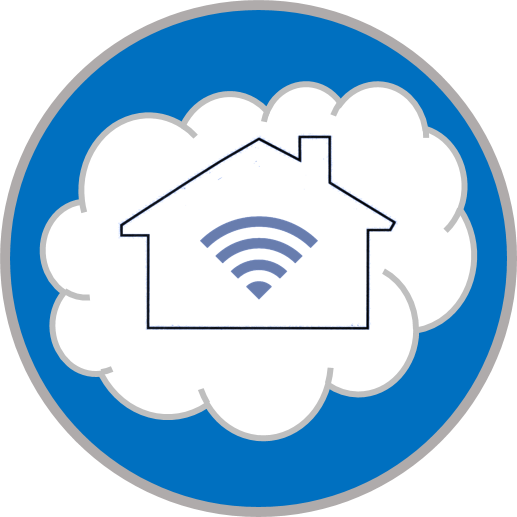
2015 – in progress
Trilogis is the coordinator of this important project.
Uncap is an open and modular ICT platform, based on industry standards, aimed at the elderly to live with dignity and as independently as possible.
Uncap, through the most diverse sets of biosensors (pressure, blood sugar, pulse, etc.) orchestrated with existing indoor and outdoor location technologies (see the project i-locate) will create an infrastructure to monitor and continually assist noninvasively users.
Uncap is based on three main pillars:
-
the development of technologies at a low cost and easy to use,
-
the definition and adjustment of platform uncap the main international standards for true portability across Europe and beyond,
-
the verification of effectiveness and usability in real contexts and for a long period.
The Project is funded by the Horizon 2020 Programme for Research and Innovation; It has a duration of 36 months and involves 23 partners from nine European countries.

systemic standardisation approach to empower smart cities and communities

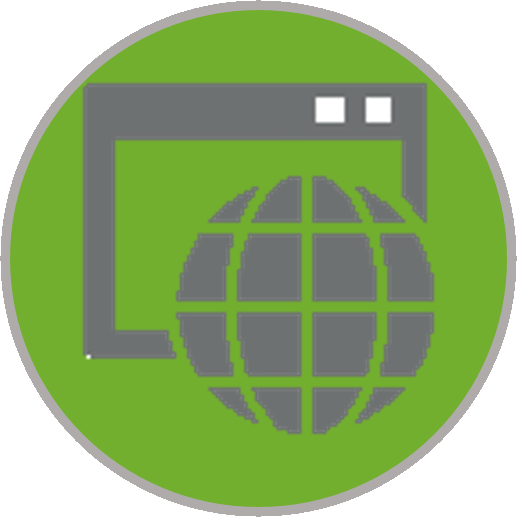
2016 – in progress
In order to promote Smart Cities in the EU, ESPRESSO should contribute to identify and foster a subset of open standards essential for Smart City platforms.
Smart City integrates physical, digital and human systems to deliver a sustainable, prosperous and inclusive future for its citizens.
Many of these innovative solutions will be based on sophisticated information and communication technologies.
However, technological complexity, as well as the complexity of the various sectorial services involved within a Smart City, require a system approach to standardisation.
In an effort to leverage the promise of a system approach, ESPRESSO (Espresso – systEmic standardisation apPRoach to Empower Smart citieS and cOmmunities) will focus on the development of a conceptual Smart City Information Framework based on open standards.
Main Goals
-
A case study-based approach to define key requirements for Smart Cities as the baseline for further standard analysis activities.
-
The development of a conceptual Smart City Information Framework as a reference data model.
-
A communication ecosystem to allow tight interaction between all participants in Smart City initiatives and activities.
-
Creation of shared semantics.
-
Standards analysis ac tivities to identif y strengths and weaknesses of existing and currently developed standards.
-
Integration of research projects in the domain of standards and Smart City sectors.
General Objectives
-
Creation of a “Smart City stakeholder community” involving a large pool of user groups.
-
Definition of a Smart City interoperability framework based on key reference cases and sectorial systems.
-
Accelerate deployment and lower cost of standardisation in the domain of Smart City.
-
Definition of a Smart City information framework.
-
Creation of business framework.
-
Understanding the legal, social, and economic impact.
-
Dissemination and creation of awareness for project results.

creating a University-Enterpise Alliance for a spatially Enabled Society




2016 – in progress
In the Geographic Information (GI) sector there is a gap between the knowledge currently being offered by the European universities and the knowledge and skills requested by the enterprises and public authorities.
This is partly due to a fast technological development but also due to recent societal changes, for instance the EU INSPIRE Directive and the e-government action plans within the member states.
The giCASES project will develop new methods for co-creation of knowledge, where industrial partners and universities will jointly develop new case based learning material based.
The new learning material and collaborative teaching will also be tested in university settings.
The case studies will be developed using a collaborative platform, where enterprises, universities and also students will collaborate.
Project Objectives
The wider objectives of this project are:
-
to enable and strengthen innovation in GI education and industry
-
to facilitate the collaborative creation, management and sharing of knowledge.
These objectives are addressed by developing new, innovative and multidisciplinary approaches to teaching and learning within the Geographic Information (GI) sector, and facilitating the exchange, flow and co-creation of knowledge.
In particular, the specific objectives of this project are:
-
to improve the quality and relevance of GI courses provided by the University members of the consortium;
-
to facilitate the growth of new knowledge-sharing processes and tools between enterprises and universities;
-
to improve the management of knowledge by the partners.
The overall approach to address these objectives is to develop new learning material and processes based on case based learning.
In the approach taken in this project, enterprises and academia will collaborate both when creating learning material based on real cases and also during and after the courses (through a collaborative platform).

Flood Risk ANticipation and Communication in the Alps

2016 – in progress
LIFE FRANCA is an EU project to promote anticipation and communication of flood risk in the alpine area.
FRANCA is the acronym of Flood Risk ANticipation and Communication in the Alps.
LIFE FRANCA will be made thanks to LIFE, the EU’s financial instrument that supports nature conservation actions, environmental protection measures and climate change mitigation actions.
The LIFE FRANCA main objective is to encourage the growth of a culture of anticipation and prevention of flood events in the Alps, through the analysis and specific modification of collective socio-cultural behaviors, decision-making methods and the vision of the population against the risks of their territory.
The project’s coordinator is Professor Roberto Poli (University of Trento), holder of The UNESCO Chair in Anticipatory Systems and Director of the Master in Social Foresight.
The project partners are:
-
University of Trento – Department of Sociology and Social Research and Department of Civil, Environmental and Mechanical Engineering (Italy)
University of Padova – Department of Land, Environment, Agriculture and Forestry (Italy)
-
Bacini Montani – Service for Torrent Control of the Autonomous Province of Trento (Italy)
-
River Adige Basin Authority (Italy)
-
MUSE, the science Museum of Trento (Italy)
-
Trilogis Srl, an Italian company specialised in geospatial software solutions
In this important project, the role of Trilogis is to make available to the consortium around the geographical know-how and expertise on geospatial technologies.
OTHER PROJECTS

The nympha project is a pre-commercial procurement (PCP) organized by the Autonomous Province of Trento aimed at creating services “mobile e-health” by doctors and patients support to innovate the treatment of bipolar disorder.
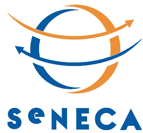
SENECA (Smart and sustaiNablE City from Above) aims at developing a reliable methodology for the processing of aerial imagery for the derivation of high quality 3D data and energy audit.
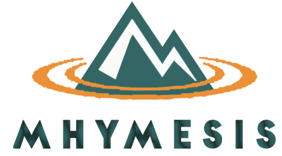
The objective of MHYMESIS is the development of a modeling system for the study of alluvial extreme events that mobilize substantial amounts of solid material (solid hyperconcentrated and debris flows).

Next Generation Mobile Platforms for HeAlth, in Mental Disorders

2016 – in progress
The NYMPHA-MD project is a Pre-Commercial Procurement project called by the Autonomous Province of Trento (more info here).
NYMPHA-MD is looking for ICT solutions, based on mobile health technologies, for supporting health professionals and patients with the treatment and disease management of bipolar disorder.
The main goal is to provide solutions based on objective and subjective monitoring for quantitative assessment and early identification of symptoms of illness related to patients behaviour, lifestyle and mood variations.
The proposed solutions shall promote the interaction between patients, doctors and caregivers and facilitate patient empowerment.
With the support of ICT, the monitoring model and portable data acquisition will be able to get continuous objective measurements of the behavior of the patients, their clinical status.
The NYMPHA-MD system will provide viewable feedback, and so will increase the awareness of patients to facilitate their progressive self-management.

Smart and sustaiNablE City from Above



2015 – in progress
SeNECA is co-funded by Fondazione Cassa di Risparmio di Trento e Rovereto – CARITRO.
Nowadays there is a growing demand for high quality spatial data, for efficient methods of sharing and updating geo-information and for a sustainable management of natural resources and energy.
Focused policies at international level are promoting the adoption of advanced information technologies for delivering effective 3D data, new solutions and services to the citizens and public administrations.
The market is ready for new spatial data but there are not many reliable services offered so far.
SENECA (Smart and sustaiNablE City from Above) aims at developing a reliable methodology for the processing of aerial imagery for the derivation of high quality 3D data and energy audit.
The partners will thus deliver innovative procedures and advanced solutions for the distribution of useful services to citizens and public administrations based on spatial information.
Between the possible results and services we can list:
-
estimation of the photo-voltaic potential of building roofs,
-
calculation of houses heat losses,
-
production of Building Information Models (BIM),
-
environmental and natural resources estimation and management,
-
etc.
The project (Jun 2015 – Jun 2017) is co-funded by Fondazione Cassa di Risparmio di Trento e Rovereto – CARITRO.

Modelling Hazard of hYperconcentrated Mountain flows: a wEbgis SImulation System

2015 – in progress
The project is co-funded by Fondazione Cassa di Risparmio di Trento e Rovereto – CARITRO.
The MHYMESIS project promoted the scientific and technological research activities in the management and preservation of the environment.
MHYMESIS (Hazard Modelling of hYperconcentrated Mountain flows: a webGIS Simulation System), is an applied research project on the prevention of hydrogeological risk in mountain environment.
The MHYMESIS’ goal is the development of a modeling system for the study of alluvial extreme events that mobilize substantial amounts of solid material (solid hyperconcentrated and debris flows).
The forecasting system that will be realized will be one of governments and professional tool available for preventive delimitation of areas with danger and for the hydraulic design of mitigation works.
MHYMESIS will be developed using the most advanced computer simulation techniques and spatial data management available today.
The pool of research includes:
CUDAM (University Centre for Hydrogeological Defence in the mountains Environment), University of Trento
the Mountains basins Service of the Autonomous Province of Trento
the Programming Department, Soil and Water Resources of the Autonomous Region of Valle d’Aosta
the Department of Structural Engineering, Construction and Geotechnical (DISEG) Politecnico di Torino
Trilogis Srl in Rovereto.
Project manager is prof. Giorgio Rosatti, CUDAM – University of Trento.
COMPLETED PROJECTS
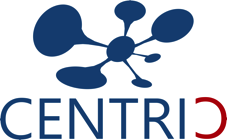
CENTRIC is based on the creation of a joint venture between Italian and Romanian partners to achieve in Romania, in addition to the land registry, a new center of excellence in the field of cadastre, environment and territory.

iCore is based on the principle that any real object and any digital object, which may be available, accessible, observable and controllable, can have a virtual representation in the Internet of Things and can be used beyond the purpose for which it was originally made.

The FISTAR mission is to find ICT applications that will revolutionize the way health care is delivered today.
These new technologies are designed to increase the degree of freedom and independence for patients who are self-control, especially in remote and rural areas.

MEPI goal: to create a service to locate medical devices within welfare structures, their unique identification and the creation of events depending on the operator concerned (technical, medical assistant, medical, …)
MDO
The goal of the MDO project is the design and implementation of a service which realizes the Manuale dell’Opera (Buildings Manual).
The MDO service will enable diverse and heterogeneous group of users to access, update and share information on the work – even on-site – in cooperative and transverse mode of the many areas of interest.
MoPAL
The Mopal project has the main objective to provide, through handheld devices, or smartphones or mobile phones, a platform to collect data, monitor, manage and report on social and health services scheduled at the assisted houses located in the territory.
Mopal uses Open Source technology and is used by social workers or home carers.
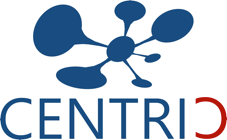
Centre for Excellence in Territorial management and Cadastre


2015 – completed
Unlike most European countries, Romania does not have yet a general cadastre.
Such a deficiency represents a critical element for the economy of the country, since it makes legal contracts, such as land purchasing, very difficult to be implemented.
Starting from such a complex scenario, CENTRIC aims –in the long term- at the creation in Romania of the new Centre of Excellence on territorial management and cadastre.
The future Centre will focus on related domains of great relevance, such as: 3D/4D geospatial data, linked geospatial data, land classification, remotely sensed data, etc.
In particular, the goal of phase 1 of the project (the 12 months CSA) is to prepare a very detailed business plan leading, during phase 2, to the establishment of the Centre including: a long-term vision and the mission of the Centre, a detailed SWOT analysis of the domain of territorial management and cadastre in Romania, a long-term scientific and innovation strategy, a market analysis, the Business Concept of the Centre, the analysis of possible cooperation, strategic alliances and long-term partnerships, the operational and financial plan of the Centre, to define a strategic growth roadmap.
Furthermore the project will also aim at the creation of a suitable ecosystem at the national Romanian and EU level, through a number of capacity building and dissemination activities.
The whole project has been based on the creation of long-lasting (beyond the 5-years duration of the overall “Teaming” project) joint venture between partners from both advanced and low performing countries, including institutional cooperation among the Romanian Cadastre agency and the counterpart in Trentino Italy considered as a best practice at the EU level.
The project is aligned with the Romanian Smart Specialisation Strategy and it has received a clear commitment from the Romanian Government to provide financial resources for infrastructural and equipment costs for phase 2.

Internet Connected Objects for Reconfigurable Ecosystem




2014 – completed
iCore is a EC FP7 project which aims to increase the Internet of Things through virtual objects and cognitive technologies; the budget is absolutely significant and amounts to 14 million Euro.
iCore is coordinated by the Italian CREATE-NET (Trento).
It will work with a consortium of 19 partners, which includes among other 12 international industrial groups, from a variety of countries including China and Japan, which already invest in the Internet of Things.
iCore will implement the principle that any real object and any digital object, which may be available, accessible, observable or controllable, can have a virtual representation in the Internet of Things and can be used beyond the purpose for which it was originally made.
Therefore, the project will explore new ways to connect physical objects and their virtual representation helping to create new opportunities for innovative services of the Internet of Things that benefit business and consumers alike.
The role of Trilogis in this important project is to make available to the consortium the geographical know-how and expertise on geospatial technologies, with particular reference to the space-time services and GIS solutions for interiors in areas such as health electronics, public services, etc.

Future Internet Social and Technological Alignment Research


2014 – completed
FISTAR is a project funded by the European Community; It belongs to the larger project of the FUTURE INTERNET FIWARE program (www.fi-ppp.eu)
FISTAR realizes pilot cases that use the technologies related to FUTURE INTERNET.
One of the activities involves the implementation of a platform for the exchange of knowledge, the promotion of innovative solutions and resolution of problems related to the productivity and sustainability of health systems and the quality of care.
FISTAR experiments technologies in live environments, experimenting in health care, assistance and in life situations “Assisted Living” with people who have problems related to advancing aging.
the FISTAR mission is to find ICT applications that will revolutionize the way health care is delivered today.
These new technologies are designed to increase the degree of freedom and independence for patients who are self-control, especially in remote and rural areas.
FISTAR has developed a community of innovators and ‘Healthcare providers’ to meet the challenges of the industry and several workshops in Europe with the aim of rethinking the problems related to the health sector and to identify possible solutions. (visit FISTAR web site)
The role of Trilogis in this important project is to make available to the consortium the geographical know-how and expertise on geospatial technologies, with particular reference to the space-time services and GIS solutions for interiors in areas such as health electronics, public services, etc.
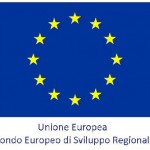

MEPI – Medical Equipment Profiling & Identification System


2012 -2013 – completed
European Regional Development Fund (ERDF) 2/2011
“The chain of innovation and communication technologies (ICTs) on the theme of “Applied research, understood as industrial research and experimental development related to the field of ICT.”
Presented by Trilogis with the company AMS Gardumi srl of Trento includes the advice of D.I.S.I. of University of Trento, the BIOtech Department of University of Trento, and the Civic Company’s Public Human Services of Trento for the test phase of the prototype development.
Target of the project.
progess: pending approval by the Autonomous Province of Trento.
The project aims to create a service that allows detection of medical devices within a structure of care, their unique identification and the generation of events according to the operator (technical management, health visitor, doctor, etc..).
The project will also study the possibility of expanding the application of the tracking system to monitor the position of the guests inside the structure of care.
MEPI will lead in the future, with reference to the “events” above, to identify specific devices that could determine the position of the person (orthostatic rather than supine), thus giving additional information on the ‘state’ of the person (for example, this can be on the ground, conscious or unconscious, active or in a chair, etc. ..)
MEPI will eventually use the same infrastructure as the foundation of a platform of “active aging mind“.
A platform, i.e., that allows residents of care facilities to carry out exercises of “mental gymnastics”, individual or group – mainly on-line – and stimulate each other according to a model of social persuasion that encourages and makes recreational activities.
MDO
Manuale Dell’Opera




2011 -2014 – completed
MDO Targets
The goal of the MDO project is the design and test of a service which realizes the Building’s Handbook, both with the use and development of qualified professional resources in the Trentino area, and through the creation of an information system for the treatment and integration of processes and data.
Currently, building’s information are fragmented, hard to find and not shared.
The MDO’s service enables heterogeneous users to consult, update and share informations about the work – even on-site – cooperatively across many areas of interest.
A fundamental aspect of the MDO’s service is the dynamism, the information availability (also “on-site“) and the complete interaction with users; therefore it will be based on service-oriented architecture (SOA).
Users with different roles, use and update MDO’s services each with their own levels of access.
The same way they can be informed directly by the MDO’s services (SMS, e-mail, fax or otherwise) for occurred updates, whether normative or related to a periodic review (as, for example, that required for fire-fighting).
The information will be certified by a metadating system that will ensure the correct and complete description of the data itself.
The monitoring is done using a computer system integrated with innovative technologies (RFID) to manage the immediate availability of information/documents relating to a building or parts of it using also mobile devices (PDAs, mobile NFC, mobile, etc.).
Users can access data at any time (because stored in a central system and served with technologies like the Internet of things).
MDO project involving the cooperation between 2 Trento’s companies (Trilogis Srl – GPI SpA) and D-Recta Srl consulting company Conegliano Veneto (Trilogis’s partner since 2008), the DISI department of University of Trento, the RFID Competence Center of the Polytechnic of Milan, the consortium Habitech – Technology Cluster, and collaboration with some test site for the testing of the prototype development.
MoPAL
Mobile Palm for Assisted Living

